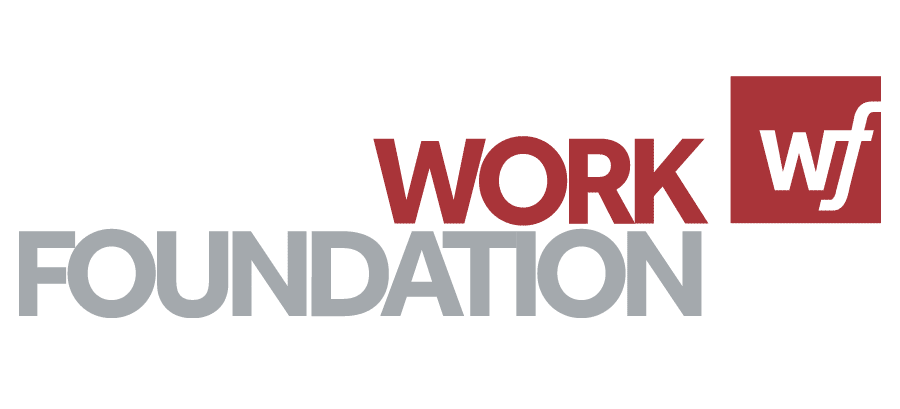By Jane Hatton, Founder and CEO of Evenbreak
Employers across the UK are currently making decisions about the future shape and make up of new forms of hybrid and remote working following the pandemic, and there is a risk that these new models of work will not be inclusive of the needs of disabled workers if their voices are not heard at this critical time of discussion and deliberation. To lessen this risk, Lancaster University are currently conducting a study, funded by the Nuffield Foundation, into Inclusive Remote and Hybrid Working, based on the lived experience of disabled people, which will add their voices to this debate.
This is a subject I am heavily invested in. As a disabled employer, all team members of Evenbreak, the social enterprise I founded in 2011, are also disabled people. We have all worked remotely since our inception, long before Covid-19 started its devastating impact on the world’s population. Evenbreak supports disabled people into new or better work, through a global specialist disability job board, and through an inclusive and accessible career support service. I can see the issues around remote and hybrid working from a number of perspectives – as an employer, as a disabled person who works remotely, as an employer of disabled people who work remotely, and from working with disabled people who are looking for new or better work in this new landscape.
The reason I chose a remote working model for Evenbreak – long before it was fashionable – was for a number of reasons. I founded the company from my bed, following spinal surgery which had left me with limited ability to sit, stand or walk, meaning travelling anywhere was very problematic and I needed to work lying down. Selfishly, I needed to work remotely, as few workplaces offer the facilities to work in that position.
Whilst my home was geared up for my needs (such as a laptop suspended above my bed), I knew that this was the case for many other disabled people, too. As I had made the decision, right from the start, to only employ disabled people, offering remote working seemed eminently sensible.
Another important consideration was that, like any other business, I wanted the very best people, and did not want to restrict my search to the small area within travelling distance of a particular location. I wanted talented people from wherever they happened to be – and twelve years on, our team are spread across the UK, including Scotland, Cornwall, London, the Midlands and elsewhere. It means that we can employ people in other countries, as we expand globally.
As a business, it also saves a significant amount of money on real estate – not to be sniffed at!
Remote working had obvious benefits for Evenbreak, but what about its people? Well, if they had been expected to come to work in a central London location (where I now live), none of the team would have even applied for the job. Evenbreak would have missed out on an extremely talented group of people.
For many of our team, even if they had lived within reach of an office, a daily commute would prove difficult, if not impossible. This might be because of pain or fatigue, but also because of inaccessible public transport. Not having the daily fight through rush hour traffic, or crowded public transport, is an immediately obvious advantage to not mandating office working.
Also, our team have homes which are geared up for their access requirements. If they need specific furniture, equipment or technology to carry out their roles, this is provided for them, either through Access to Work, or during the current backlog and slow turnaround, through us.
Many people, our team included, prefer to work at different times during the day. Some prefer to work at evenings and weekends, uninterrupted by the constant stream of emails and phone calls. Some prefer to work from early in the morning, others not until their morning care needs have been met. And others choose to work flexibly, to accommodate fluctuating conditions, or unpredictable care needs. Working from home makes this easy – no keeping offices open for extended periods or travelling at unusual times of the day.
Homeworking works really well for Evenbreak and its team of disabled employees. So, is it the panacea for all disabled people? Absolutely not!
There are some real risks around remote and hybrid working.
One was discovered when the pandemic lockdowns ended. Having discovered that working from home opened up the candidate market to more disabled people, some employers took the view that disabled people could work from home, whilst non-disabled people could work on site. This could also negate the need to make the physical workplace accessible. This, of course, would lead to unfair and unjustified segregation. Whilst working from home may suit many disabled people, many others much prefer to work on site. Similarly, working from home suits many non-disabled people and would be their preference, whilst others may prefer to work on site. The ideal situation is that, where roles allow, all employees would have the option to work from home for all or part of the week, regardless of disability.
Another risk is that if more disabled people work from home, through choice or necessity, they may be overlooked for development opportunities or promotion, or be missed out on interesting projects, and the informal communication that happens in the workplace. They may feel isolated from the team, and excluded from important conversations.
People work for many reasons, and high up on the list can be the social aspect. Disabled people are more likely than others to feel isolated, and working away from their team mates can exacerbate this. We try to combat this by having online Morning Coffee and Afternoon Tea sessions, where anyone who is free can drop in, and talk about work is forbidden (although naturally crops up sometimes). We also have in-person get togethers at various events throughout the year, and a whole team event two or three times a year, arranging accessible transport and accommodation for everyone.
People who work in a hybrid way, who require accessible equipment (ergonomic chairs, height adjustable desks, assistive technology, etc), will require two sets – one for home and one for the workplace. Employers are not always prepared to meet this additional cost, meaning some employees will be working without their access needs being met, for at least part of the week. This may affect their physical or mental health, their performance and their career prospects.
Another risk with hybrid working is the use of ‘hot desking’. For many, this will be fine, but for others can cause problems. A person with visual impairment, who has everything laid out where they can find it. An autistic employee who struggles with change. Someone with hearing impairment who might like to sit with their back to a wall so they can see people approaching them. This is fairly simple to manage, but not all employers are open to making exceptions.
In conclusion, the wider acceptance of new ways of working, including remote and hybrid working patterns, are generally much better for everyone. However, like every other working practice, inclusion and accessibility need to be designed and embedded in from the start, to ensure that disabled people do not face further disadvantages in the process.
Jane Hatton is the founder and CEO of Evenbreak, an organisation dedicated to joining up disabled jobseekers with inclusively-minded employers.
To have your own voice heard on how to make remote and hybrid work more inclusive within a post-pandemic employment landscape, please participate in this research by completing our survey of disabled workers’ experiences. Employers are making decisions now about future ways of working that will affect the long-term working conditions, health and wellbeing of disabled workers across the UK and beyond, so we thank you for taking the time to be involved in shaping these decisions through your own participation in this project.






